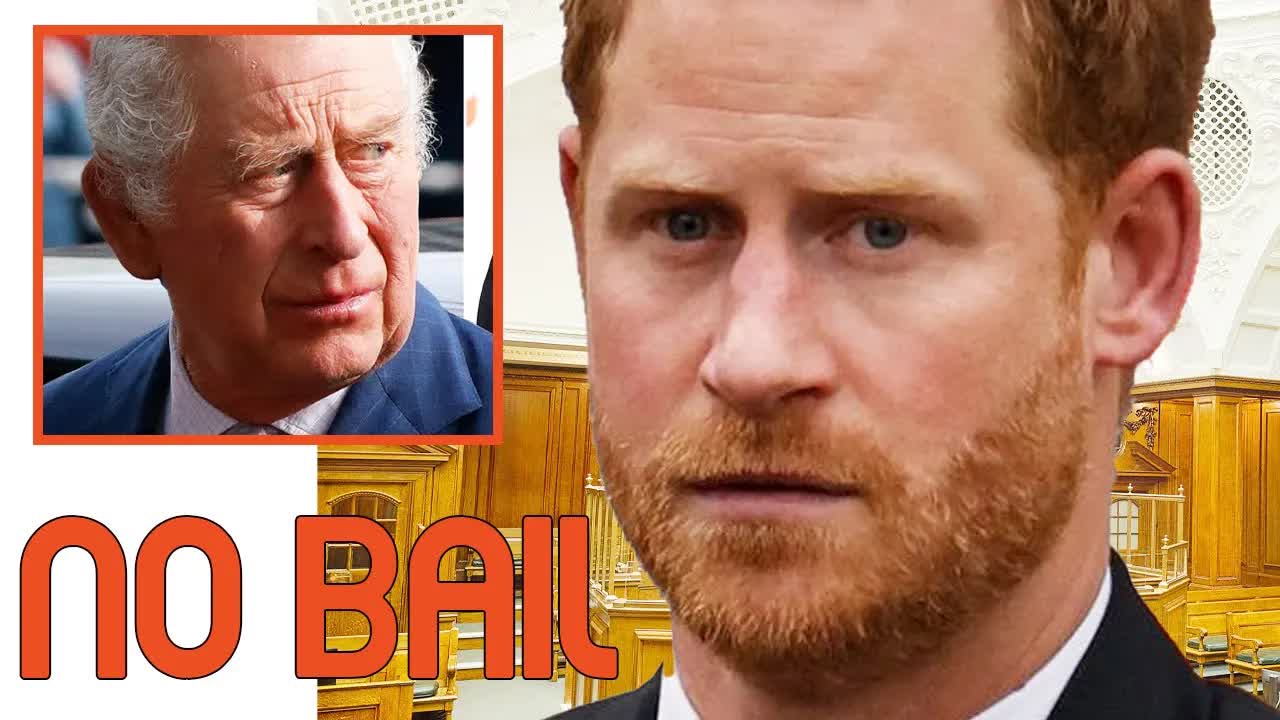Must Read
Exclusive: Prince Harry Refused to Pay £500,000 Bail as Court Rules Against Him
Prince Harry's attempt to cover the expenses for armed police guards has been rejected by a judge, leading taxpayers to demand their money back.
On Tuesday, the court ruled that the royal may have to bear the full costs of the High Court suit, amounting to £500,000.
When Harry stepped back as a senior royal and relocated to North America with his wife Meghan Markle in January 2020, his taxpayer-funded protection was withdrawn.
His ongoing legal battle with the Home Office seeks to secure free comprehensive police protection during his visits to Britain.
The case has already incurred a hefty bill for the British taxpayers, surpassing £300,000.
According to a Freedom of Information Request, the government's legal department costs alone have amounted to £199,000.
Additionally, £93,000 has been spent on general counsel, £660 on court fees, £2,900 on email disclosure, and £16.55 for a courier, as reported by sources.
Despite squandering taxpayers' money on a futile pursuit and facing defeat, Harry's lawyers intend to contest the application for him to cover the government's costs.
Interestingly, while he claims he cannot afford to pay £400,000, Harry has previously indicated that he could contribute up to £6 million for security expenses.
This audacious attempt to evade his financial obligations and burden UK taxpayers is both entitled and repugnant.
The extravagant £30 million spectacle was already an unwelcome expense that cannot be recovered, but Harry knowingly entered this legal battle.
In such cases, the principle is simple: if you lose, you pay.
It is unfathomable how he could consider avoiding his responsibilities acceptable.
Sources suggest that Harry is now attempting to seek assistance from his father, King Charles, hoping that he would cover the costs.
However, Charles has firmly declined, having previously cut off communication with Harry and stated, “I'm not a bank.”
Moreover, the half-million pounds at stake here only represents the other party's costs for one of his ongoing cases.
It is highly improbable that Charles would receive approval from either the Duchy of Lancaster trustees or his own bankers to cover such an exorbitant sum.
This ruling comes amidst another High Court trial in which Harry is suing Mirror Group newspapers for alleged unlawful information gathering.
Last week, he hired a KC and three other barristers to argue in court that his alternative offer to pay for security should be reconsidered.
However, barristers representing the police and Home Office argued that it would create a two-tier system, allowing only the wealthy to exploit their own protection.
They stated that armed forces should not be expected to risk their lives and potentially take a bullet to safeguard a paying customer.
High Court Judge Sir Martin Chamberlain denied Prince Harry's request to apply for a judicial review of the rejection of his payment offer.
The judge agreed with the three barristers representing the Home Secretary and the Metropolitan Police, who argued that allowing such an offer would set an unacceptable precedent.
Furthermore, the judge dismissed Harry's claim that he should have been consulted by the Executive Committee for the Protection of Royalty and Public Figures (RAVEC) regarding the refusal to accept his payment.
In conclusion, Prince Harry's attempt to avoid financial responsibility for his legal battles has been thwarted by the court.
The ruling not only highlights the significant costs incurred by the British taxpayers but also emphasizes the principle that losing parties must bear the consequences.








































